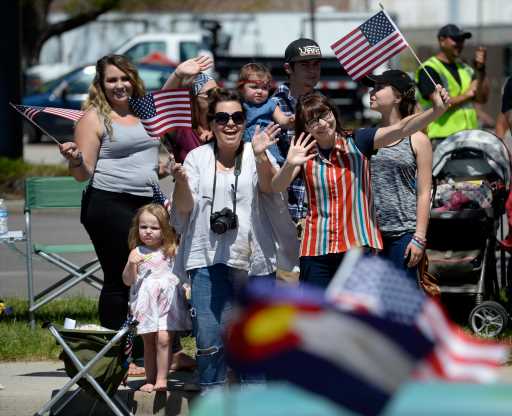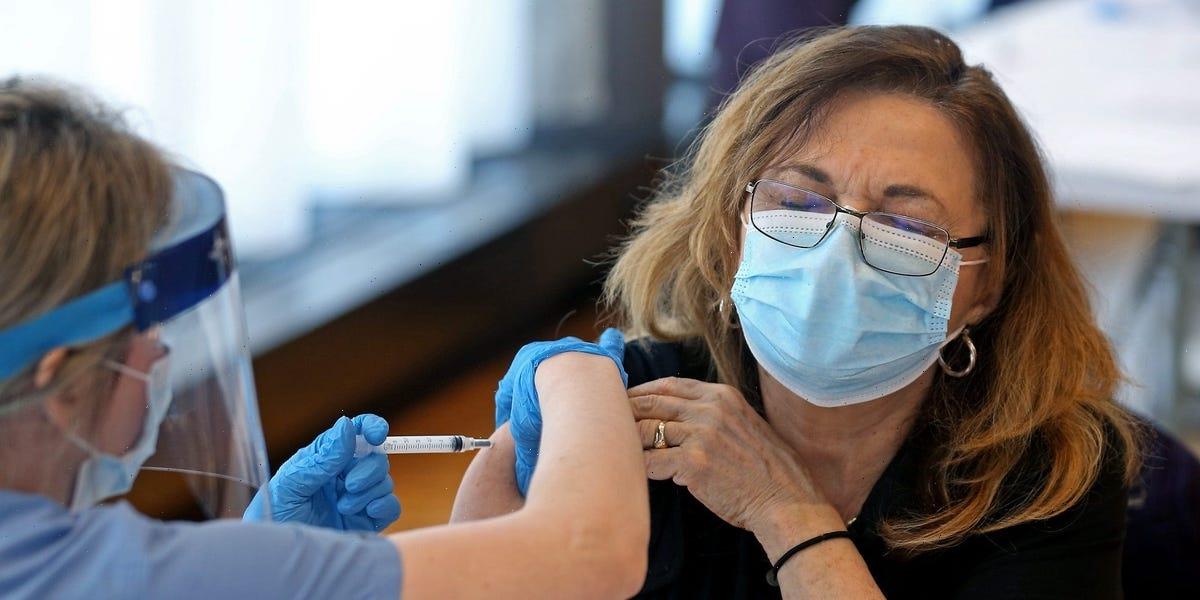The moment happened as so many others have. A man unknown to most around the world was about to become a hashtag. Millions would watch a video played countless times over the course of a year, horrified to see a police officer press his knee into the man's neck for 9½ minutes, killing him. The desire to reverse this man's fate seemed as desperate as it was futile.
The world changed May 25, 2020, mere months after the global pandemic had already altered everything. George Floyd's death, which occurred under the weight of former Minneapolis police officer Derek Chauvin, opened many eyes to the realities of police brutality. Just about every corner of life was affected by the renewed racial justice movement spurred by Floyd's death: policing, politics, sports, art, culture, business, education, media and more. Social media feeds and kitchen tables and park benches became settings for conversation and confrontation.
"It was an inflection moment to take a hard look at ourselves, and it was something I think most Americans were not proud of and alarmed by," said Cedric Richmond, director of the White House Office of Public Engagement.
While Floyd's death changed the world at large, the tragedy was a stark reminder, specifically for Black Americans, of the deep systemic realities underlying Black life. While that was not necessarily new information, it brought about a renewed call for action, said Richmond, a former member of Congress from Louisiana. "People have been asking for [change] for a long time. That's the whole 'Say Their Names' movement," he said, referring to the calls to invoke the names of people who have succumbed to police violence.
The video of Floyd's last gasps for air was everywhere, for better or for worse, said Maryam Jernigan-Noesi, a psychologist who studies racial trauma. Watching situations like that can bring up past trauma for people of color, particularly Black people who were forced to watch it, sometimes more than once, she said.
"George Floyd, for Black people, was a reminder of the history, of the consistency and of the pervasiveness" of racism, she said.
The moment galvanized Black people all over to recognize "the historical and cultural trauma — in addition to the collective trauma — of the experience of the Black community," Jernigan-Noesi added. The visceral nature of the video capturing Floyd's final moments crystallized an experience passed through generations: "It's my life, my experiences, in addition to maybe what I've heard from my mother, my grandmother, my uncle, my auntie or witnesses relative to my family or community," she said.
The collective trauma led to a reckoning for Black Americans in particular and within Black communities. In February 2019 — a year before Covid-19 laid bare health inequalities that have undercut Black Americans for centuries and before Floyd's death rattled the world — the Pew Research Center polled Americans about their attitudes on race. Even then, there was little debate among Black people: 78 percent said the country has not gone far enough to achieve racial equality, compared to 58 percent of overall respondents. Half of Black respondents said it was unlikely that the country ever will.
By September, months after the Black Lives Matter protests began in response to Floyd's death, increased support for the movement had dropped off again in the overall population after having peaked during the summer, according to Pew. Among Black people, however, support for Black Lives Matter spiked in June to 86 percent and remained high through to the fall, even climbing one more percentage point. The only other racial group to sustain the same increased support for the movement were Asian respondents.
Juliana Horowitz, a senior researcher for the Pew Research Center, said the jump may have been because, at 65 percent, Black adults were the most likely to say that in the months following Floyd's death, they "had done something to educate themselves in the history of racial inequality."
"Black people were the ones that were sort of the most mobilized to learn more, to pay more attention and to take action in their own lives," Horowitz said, citing Pew data. Across the board, books about anti-Black racism and systems of inequality filled bestseller lists throughout the summer. Black-led groups and new Black Lives Matter chapters sprouted up to combat racial inequality, and policymakers were compelled to listen. For instance, more than half of states have passed police reform laws, such as banning chokeholds and restricting use of force, since last May, according to the National Conference of State Legislatures.
One area of focus was policing and the criminal legal system at large, with its outsize impact on Black people. Mariame Kaba, an organizer, educator and longtime prison abolitionist, found a large audience open to hearing more about her work in dismantling what is referred to the prison industrial complex. "All of a sudden, people had a real interest in abolitionist thinking and abolitionist organizing," Kaba, the author of "We Do This 'Til We Free Us," said in February.
Black employees also became increasingly engaged with their workplaces. "Before George Floyd, when the pandemic had hit, a lot of companies immediately laid off their diversity and inclusion teams," said Mandy Price, CEO and co-founder of Kanarys, a startup that helps companies achieve workplace diversity, equity and inclusion. "As companies faced economic uncertainty, many eliminated those teams or slashed their budgets."
But after Floyd's death and the subsequent protests, the role business had in sustaining inequalities became clear. Black workers took their companies to task, and consumers began to demand more.
"Chief diversity officer in 2020 was the fastest-growing role" among C-suite positions, Price said. According to LinkedIn, the number of postings for chief diversity officers grew by 84 percent last year.
Richmond said advocacy groups led by people of color "have a meaningful place at the table" with federal lawmakers to find grassroots solutions to inequality and racial injustice. While there is still plenty of backlash from efforts on the federal, state and local levels to reform policing, establish reparations and diversify education, Black Americans are central to changes that are taking place.
"The conversations and the dialog are important, because it does shape policy," he said.
All of that is also making an impact in cultural arenas. Fine art institutions have appointed more Black curators and program directors after years of gatekeeping that shut them out. A record nine of the 20 acting nominees for this year's Academy Awards were people of color. Professional athletes, who have come under increasing scrutiny for speaking out against racial inequality, staged mass protests through the summer and engaged with the electoral process in 2020. A notable example was when WNBA players helped Raphael Warnock defeat Sen. Kelly Loeffler of Georgia, a co-owner of the Atlanta Dream.
"I haven't always been this comfortable speaking about my personal thoughts and convictions," Nneka Ogwumike of the Los Angeles Sparks said this year. "But as time has gone on, I've realized that speaking up is way, way, way better than not saying anything."
As Jernigan-Noesi, the psychologist, noted, the conversations and actions led by Black people and shared by everyone are shaping the future, even if the process is tumultuous.
"In terms of moving the needle forward, not everyone is on the same page," she said. "We know not everyone agrees. There's a great divide in some ways, but I think what's different is you have people of color and white people from a variety of backgrounds, in all states, really working together actively. I hope that momentum continues — that certainly feels like it was different."
Follow NBCBLK on Facebook, Twitter and Instagram.
Source: Read Full Article



